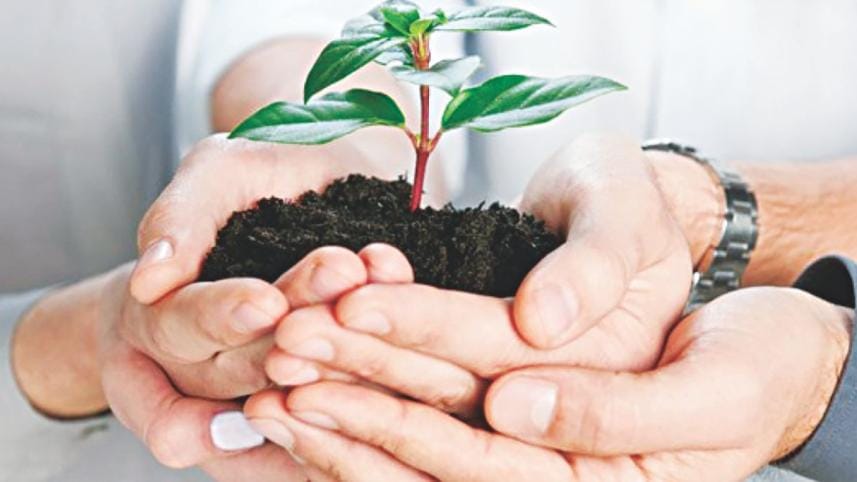When being wrong can feel right

I never imagined that most of the values and precepts I learned while growing up would become dated and rendered almost irrelevant during my lifetime. In particular, the lessons in humility that our parents and teachers taught us seem to have simply gone out of the window. I wonder what happened to the oft-repeated adages that our elders were wont to quote in the belief that these would help us live a more meaningful and fulfilling life? For example: "Be like the bamboo; the higher you grow, the more elegantly you bow when faced with hard winds," or "True humility is staying open to learning, regardless of how much you already know."
Some people tend to make a subtle distinction between intellectual and overall humility. Mark Leary, the Duke University social and personality psychologist, describes intellectual humility as "the recognition that the things you believe in might in fact be wrong." However, I think that at a basic level, the two overlap for people who lack overall humility tend to be intellectually arrogant. What's critical is not to make the common mistake of equating humility with a dearth of confidence, or self-esteem. Actually, humble people have a deeper sense of self-worth and remain secure when challenged intellectually.
It is quite difficult to identify the reasons for the overbearing behaviour of the nouveau riche and the parvenus. But the sudden acquisition of wealth, power, and/or social position is a major contributing factor. Only few remain unaffected by this affliction. Why? It seems nature has not equipped us to contain sudden success with equanimity and humility.
Unfortunately, social media, especially Facebook and Instagram, have taken boasting to a pandemic level. Most readers must be quite familiar with self-aggrandising messages and narcissistic photos on social media from friends, family, and even remote acquaintances around the globe. Recently, I noticed a video posted by a Facebook acquaintance in a bathrobe, captioned: "After a shower at the first-class lounge in Dubai airport." It seems that there is no escaping the ridiculous propaganda blitz!
Regrettably, social tolerance for people who brag is on the increase. The errant behaviour is often passed off as "silliness" or at best as harmless bantering. I guess some degree of boasting is inevitable (it has always existed), but we cannot understate its negative side-effects. For instance, by hogging the entire conversation, the braggart crowds out the chances of a meaningful interaction with people that one can truly learn from. Another, perhaps unintended, effect of boasting is that it makes others feel inadequate, or at worst inferior. While initially most people are overwhelmed, even impressed, by the self-propagators, over time friends and acquaintances find the company of narcissists and boasters tedious.
Unfortunately, humility is easier to preach than practice, especially in the current global culture that promotes and rewards overconfidence and arrogance—starting from the career counsellor who dissuades interviewees from demonstrating even a minimal level of ignorance to social acquaintances who often equate modesty with weakness and ignorance. Over the past few decades, status and material success have overtaken moral and ethical values and principles. We seem to have turned off our analytical lens and no longer judge people on their intrinsic merit and character.
This is bound to have long-term implications because by accepting the loudest and proudest view, we may be at risk of accepting ideas that may turn out to be erroneous. Historically, intellectual humility is what has led to great discoveries and inventions. One illustration is the scientific method where a scientist actively works against her own hypothesis, exploring alternative explanations for a phenomenon before settling on a conclusion.
How can we inculcate and promote humility? We need to work harder at convincing people and ourselves that a person who admits he is wrong is perhaps the most secure in his knowledge. At a personal level, humility helps us acquire valuable character traits like introspection, self-awareness, and respect for diverse ideas and views. Since humble people are more open to learning from others, they develop better analytical and cognitive skills and are constantly evolving. They are thus more likely to change the status quo for the better. We also need to underscore the role of chance and opportunity in our success. Most successful people have a high sense of their achievement and attribute it to their superb skills and acumen. The realisation that a large part of our success depends on good fortune can take the steam out of our high opinion of ourselves.
Perhaps, the best argument I can offer in favour of humility is through my personal experience. When I open myself up to the vastness of my own ignorance, I can't help but feel claustrophobic. Often I imagine my mind as a small boat adrift in unchartered waters, without a clear map. The waves of hubris and ignorant bragging are constantly trying to veer me off course. Hence, I need to muster humility and forbearance to accept diverse views and understand that each one of us is only a piece of the whole puzzle.
Could I be wrong? Maybe. If you disagree, try to convince me otherwise—for I am always open to the challenge of reasoning!
Milia Ali is a Rabindra Sangeet exponent and a former employee of the World Bank.




Comments